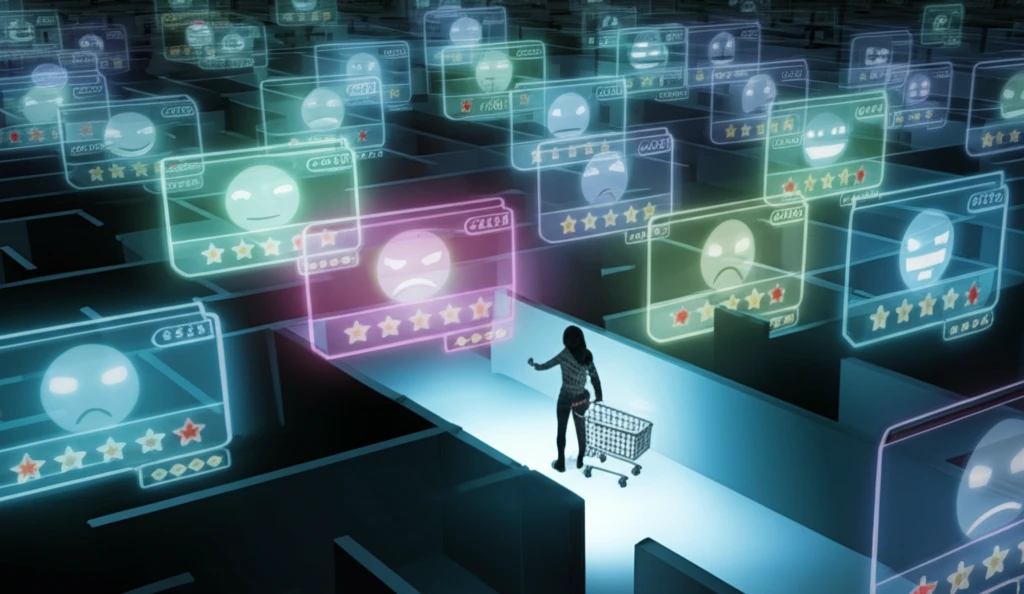
Is What You Read Online Really True? How Product Reviews are Shaping Our Choices (and What's Hidden)
"Uncover the hidden dynamics behind online product reviews and how they affect our purchasing decisions in ways you might not expect."
In today's digital age, online customer reviews have become an undeniable force in shaping consumer behavior. We rely on them to guide our purchasing decisions, learn about product quality, and make informed choices. But what if the information we're receiving isn't always as straightforward as it seems? What if there are hidden dynamics at play that subtly influence the reviews we read and, ultimately, the products we buy?
New research explores the complexities of strategic communication within the context of social learning, specifically focusing on online product reviews. The study delves into the motivations behind why consumers write reviews, revealing a surprising conflict of interest that can lead to biased or 'noisy' information. This isn't necessarily about fake reviews or censorship – it's about the inherent tension between a reviewer's personal experience and their desire to help future consumers.
The study suggests that this conflict leads to reviews that are inevitably noisy, regardless of whether reviewers can fully commit to a transparent reviewing strategy or resort to more casual, 'cheap talk.' The most effective communication methods often involve honest reporting of extreme experiences while grouping moderate experiences together. The key takeaway? What you read in online reviews is the result of strategic information transmission, shaped by a complex interplay of individual incentives and social considerations.
The Hidden Conflict: Why Reviewers Don't Always Tell the Whole Truth

The research highlights a fundamental conflict that arises when reviewers care about the well-being of future consumers. To write a review, a consumer must first purchase the product. This creates a situation where a reviewer today might want future consumers to buy the product, even if it means a personal loss for them. Why? To generate more information for consumers who come after.
- Altruism vs. Self-Interest: Reviewers balance their desire to help others with their own experiences and potential biases.
- Information as a Public Good: Product reviews create an information externality, benefiting future consumers.
- Strategic Communication: Reviewers actively strategize how to present their experiences to maximize social welfare.
Decoding the Reviews: What You Can Do as a Savvy Consumer
So, what does this mean for you as a consumer navigating the vast landscape of online product reviews? It's a reminder that reviews aren't always a perfect reflection of reality. Be aware of the potential for subtle biases and strategic communication. Look for patterns, consider the source, and remember that individual experiences can vary. Ultimately, the more informed you are about the hidden dynamics at play, the better equipped you'll be to make smart purchasing decisions.
